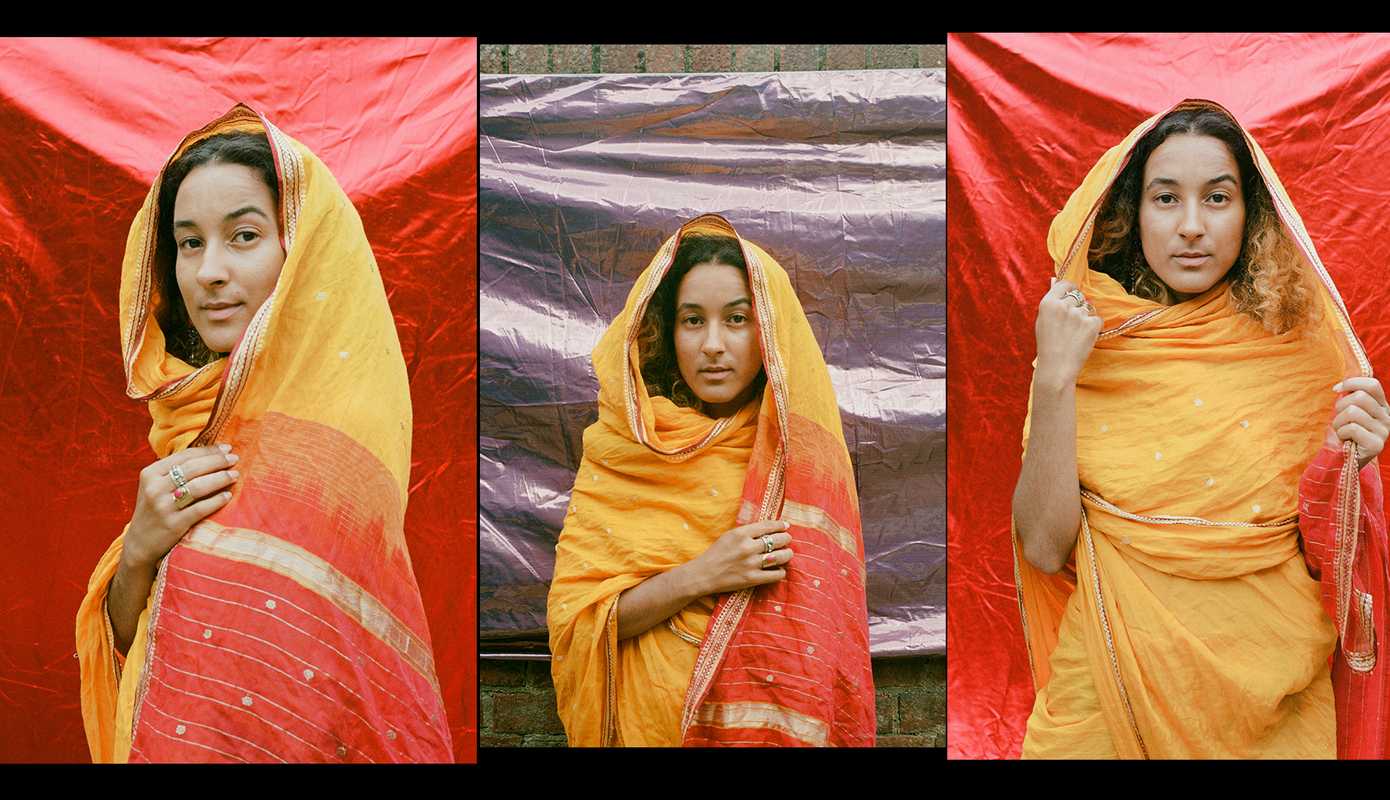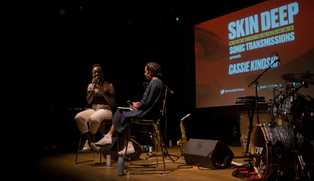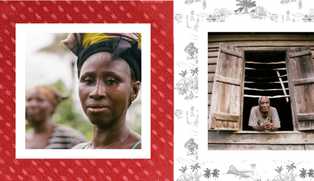In Germany, a student’s grades in year four decide whether they will be accepted into a grammar school or whether they will go to a ‘lower’ secondary school. When I was nine years old, my father was eager for me to do well and to move onto a good school so that I could go to university one day. “If you get into grammar school, I’ll take you to Disneyland,” he promised. That was all I needed to hear. I did exceptionally well, and chose a grammar school that specialised in music and fine art. I was ready to go to Paris.
My mother said no, even though I begged her. After days of tearful arguing, she sat me down in exasperation and said: “What if you don’t go to France? What if you go to Sudan and I’m not there to protect you?” Protect me from what I wondered. She answered with graphic descriptions of female genital cutting, sometimes referred to as Female Genital Mutilation (FGM), and followed this up with the suggestion that we watch some videos so that I could see for myself what would happen to me if my father decided to spontaneously take me to his country of birth. This was the first time I remember contemplating what it meant to be from Sudan.
My father had no intention of taking me to Sudan. To be honest, he had never intended to take me to Disneyland either – we know that African parents will do anything to make us get them grades. However, to 9-year-old Amuna, Sudan was now a dangerous faraway place where ‘they’ wore gold earrings so thick they hurt my ear lobes and also cut off girls’ vaginas. Before knowing that ‘Sudan’ was a place I could be kidnapped to, it had always just been right where I was: Nuremberg, the place where older black people spoke German in a funny way and younger black people spoke German in a normal way. I grew up around Sudanese children without knowing that we were Sudanese. Eating Sudanese food without knowing it was Sudanese food. It was simply the best-tasting meat.
But everything changed when I started grammar school, where I found myself suddenly deprived of the company of people-who-look-like-me. Students and teachers struggled to grasp my identity. I relentlessly had to prove that I was German, and had no time for being Sudanese. Consequently, I spent a considerable portion of my teenage years making sure people understood that I knew nothing about Sudan. I didn’t speak Arabic. I hadn’t been to Sudan. I didn’t know what it meant to be Sudanese. So, clearly, I wasn’t Sudanese.
Luckily at 16, I moved to England and stayed with my father’s sister for a few months. She was appalled by what she called my “German arrogance” and lack of knowledge about our family and language. Why had my father not shown me more of his culture? It put her on a mission to reintroduce me to Sudanese culture, food, stories, music and Islam. Two years later, after turning 18 and finally being allowed to go without anyone’s permission, I booked a flight to Khartoum. At the time, my father was not on friendly terms with the embassy and as a result I struggled to get a visa. The fact that I have no Sudanese papers means that, to the uncles at the embassy, “I-could-be-from-anywhere.” “Why not help me get a Sudanese passport then?” I would ask. “Because Sudan is dangerous. You don’t want to be a citizen. You don’t know their rules, and you wouldn’t want to be subjected to them either,” I would be told by my father and others.
As the flight was landing at Khartoum International Airport, I conjured up the world map in my inner eye, tried to visualize where I was. The fact that my extended family lived in this place didn’t make it any more familiar. After exploring the capital with my cousins (who also happen to be part German), I took a bus eastward to Port Sudan, by the Red Sea, where my grandmother Amna lives. It was Eid and nearly the whole family came to see me. Most of them, I had never heard of. Most of them, I could not communicate with. Most of them were amazed by my long nose and disliked my hairy arms and big mouth.
I felt like I had spent a life-time in Sudan and left feeling committed to learn Arabic and further explore my Sudanese heritage. At university, I wrote essays about the wars in Darfur and Southern Sudan, binge-watched documentaries, and read countless books. I went to concerts by Sudanese musicians and sat around with the uncles to practice my Arabic. During my third year of university, I moved to Egypt to study but also to be close to Sudan and visit my family again. At the Sudanese embassy in Cairo, I was again confronted with the reality of not having official papers. I could not prove my Sudaneseness. Unsurprisingly, this problem could only be fixed if I paid 100€ in cash for a 1-week-visa. There would be no Sudan trip for me.
Fast forward to my final year of university and “where-do-I-go-from-here” thoughts. I didn’t want to move back to Germany, so I made plans to go to Sudan. The date was the 18thof December 2018, one day before the Sudan Uprising (officially) started and two days after my birthday. I was flying home from London to celebrate with my family and bracing myself for the “what will you do after uni?” questions. I was going to tell them over dinner that I wanted to apply to the German cultural institute in Khartoum. This conversation never happened. Instead, all of a sudden, my father’s country was plunged into a revolution. My social media feed was filled with videos and posts of people chanting, wounded, crying, dying, and unable to continue living their lives. Future plans became even more uncertain as the Sudan Uprisings virtually took over my life. My days consisted of searching the internet for any information I could get. My cousins protesting, their friends dying, my aunts telling me nothing on the phone. My father telling me to stop looking at those awful videos. “Insha’Allah it will fall,” they say.
I am scared of revolutions. My training in International Relations and my brief stay in Egypt had taught me that I should be. The word revolution encompasses a complex kaleidoscope of emotions and events. It shines light on our hopes for freedom and at the same time, it mirrors dangerous patterns of manipulation and polarisation. Revolutions are fascinating and terrifying as they reflect multiplicity and infinite possibilities for change, both for better and for worse. Through other people’s accounts I have experienced both, and I feel triggered every time an unbothered leftie says: “we should just start a revolution.”
Revolutions are not always as romantic as we imagine them to be, even with the inspiring shows of solidarity and resistance that we saw in the sit-in that blossomed in the heart of Sudan. They are also lethal and traumatizing. The spontaneous eruptions of outcry that fuel a revolution begin when a desperate people decide they can no longer continue with things as they are. The people realise that they are willing to stake their lives, and those of their friends and family, to change and transform society, even if they don’t know what that change looks like. Living through the Sudan Uprisings meant embracing pain, violence and uncertainty while holding on to the hope that the 30 year military dictatorship of Omar al Bashir, and then the Transitional Military Council, could be uprooted. The Sudan Uprisings meant that people had to risk living without our loved ones forever for the sake of a better future.
How do you engage in a revolution, hating the word but understanding the necessity, from a safe privileged screen in Europe? How can I support my country in fighting for the very same rights that I have taken for granted most of my life? And when did it become my country? When did I start tearing up every time somebody mentioned Sudan, every time I heard a Sudanese song, every time a young woman shared her experiences?
For over eight months, I woke up to the revolution and went to bed with the revolution; messaging my family, attempting to engage my father, trying to understand what it means to be Sudanese again-and-again. If I protest I feel like an imposter, so instead I focus on the street art that is fuelling protest culture. I collect pictures of murals and bear witness to Sudanese women calling for their rights. I read up on the politics behind the events and raise awareness in a way that neither minimizes what the Sudanese people are going through nor takes up undeserved space. Since I have never lived in Sudan and took years to be comfortable in my identity, I do not want to appropriate the Sudanese struggle and speak over other people’s voices. Instead, I am connecting with the diaspora and waiting for the future moment in which I will be useful.
I am not only proud to be Sudanese; I am proudly Sudanese. If there is anything the Sudanese revolution has done for me, it is that it has catalysed the process of my self-discovery, connecting me to members of the diaspora globally and showing me that my passion for art and music are deeply ingrained in my cultural genetics. Watching videos day-and-night has improved my Arabic and given me the confidence to inhabit this awkward space I have avoided for so long. The Sudan Uprising is wonderful because it builds relations that go beyond political and economic unrest. Certainly, as a supporter of the revolution from abroad, I participated in creating culture and pathways for liberation that bridge borders and strengthen resistance and resilience.
The place of a revolutionary diaspora is amongst its people, respectfully. I began to understand this upon the realisation that as a Sudanese with a German passport and European privileges, my survivor’s guilt can be overcome through recognising that my power is not necessarily harmful. In fact, my power can help build a better Sudan. For now, that means safeguarding the ideals of the revolution and reinforcing them in our discussions and activism. I am much more conscious of the country’s situation and challenges than I was last December. Even though a peace agreement has been signed, I am cautious to celebrate the new transitional institutions as long as their comprehensive peace process excludes women and the marginalised.
Tasgot bas! (Just Fall!) All of them. We are just getting started.
**Amuna Wagner is a co-founder & author at kandaka.blog




